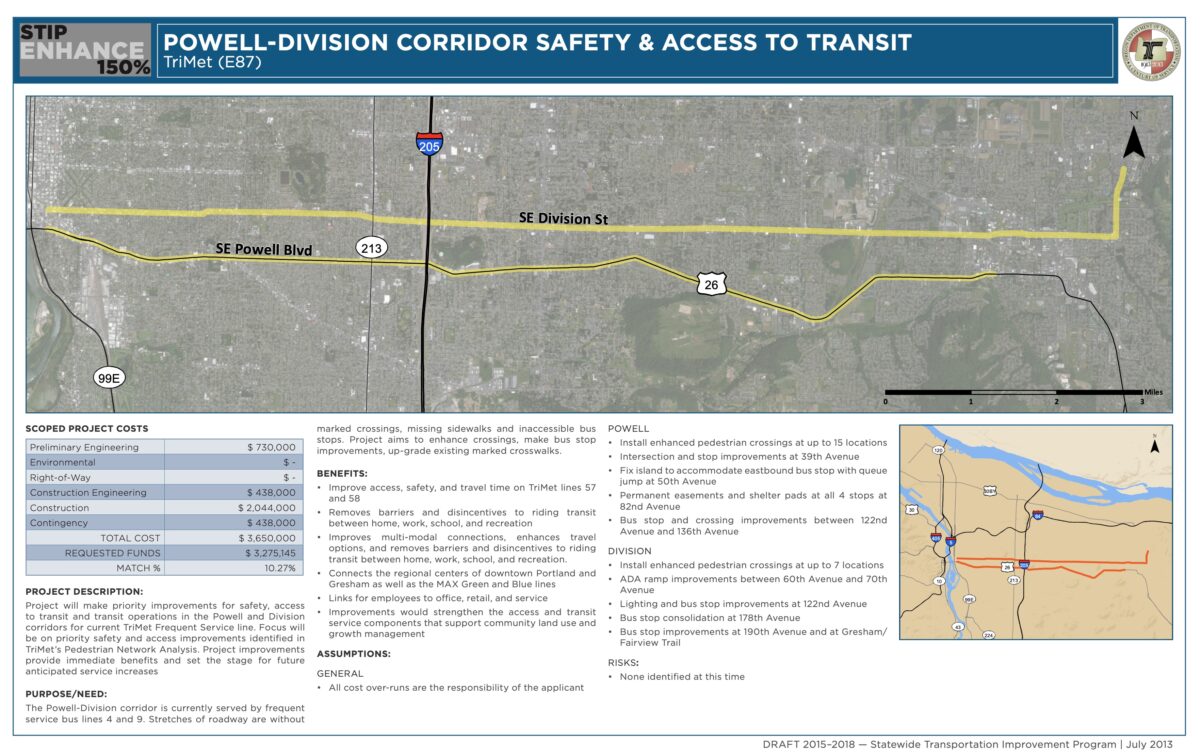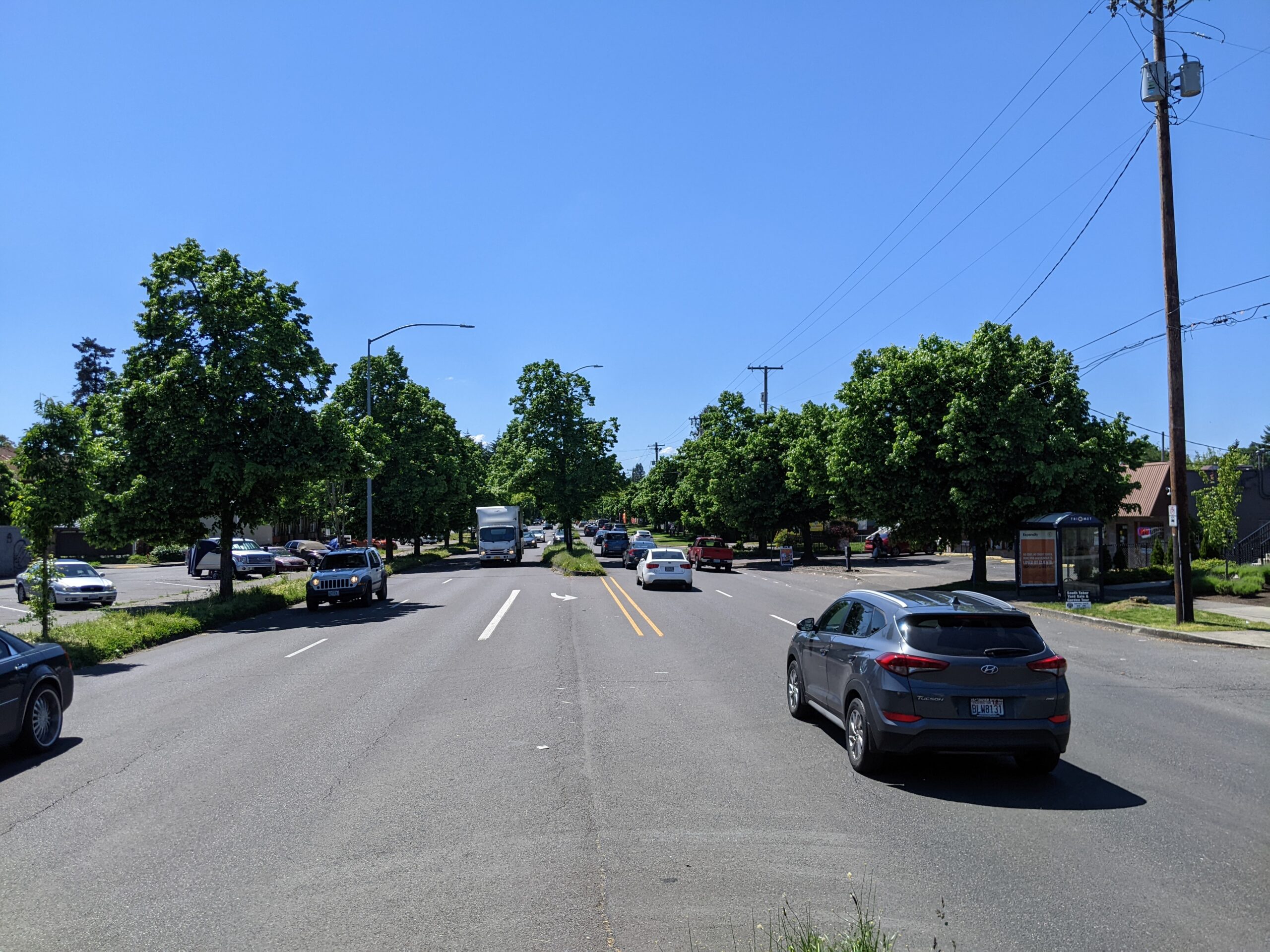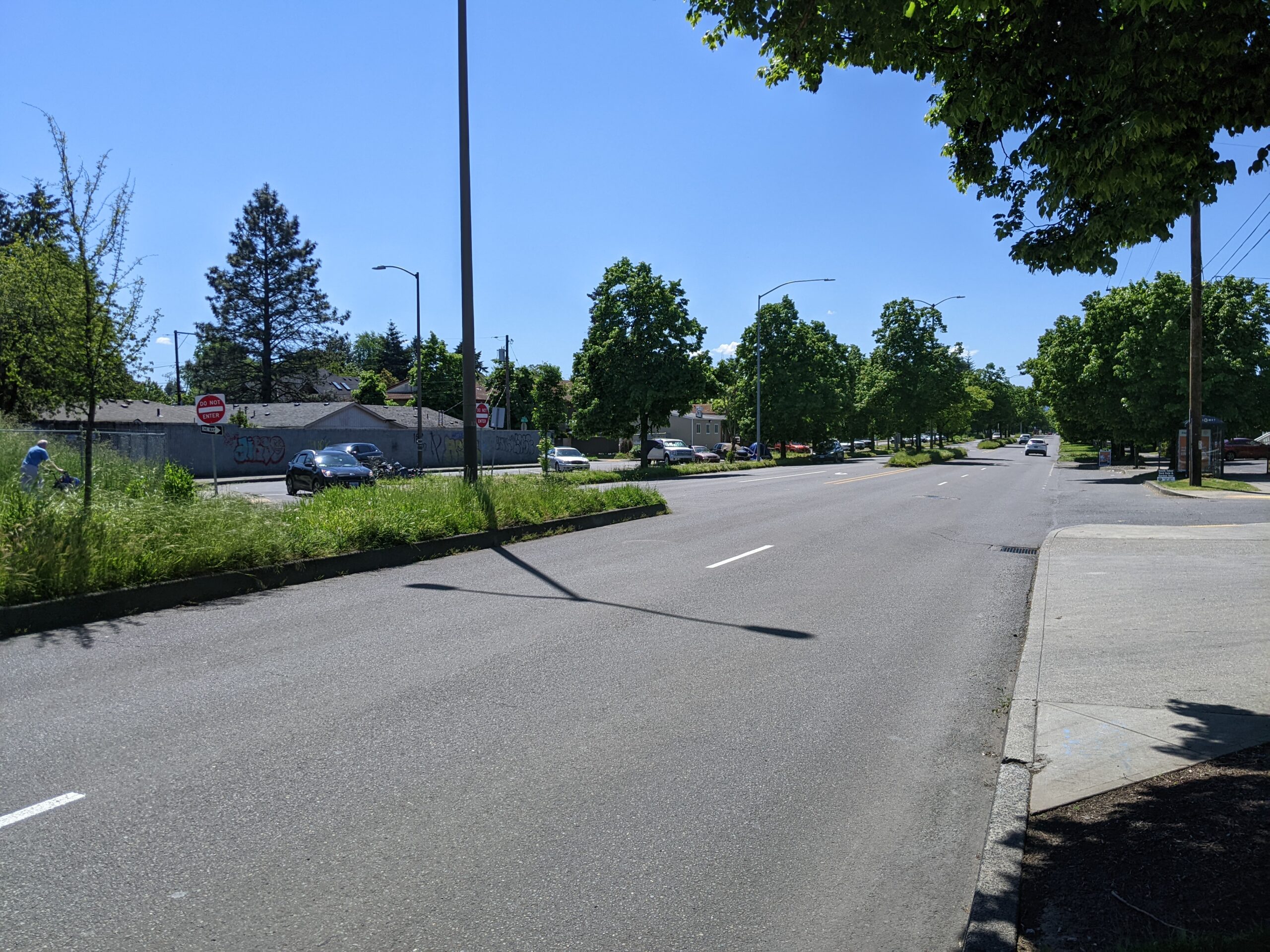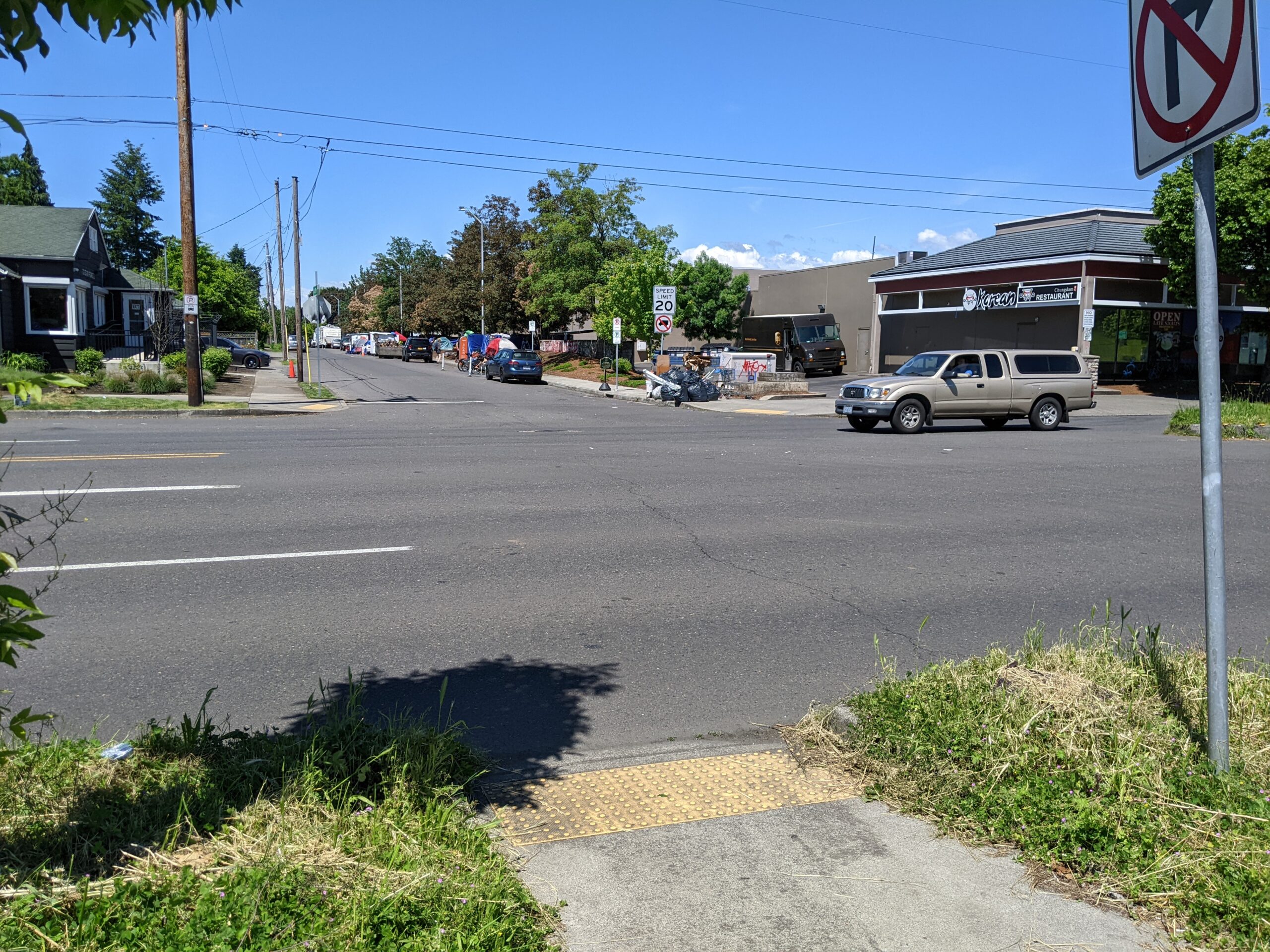
“Everybody’s going to have to drive their kids to school if they can’t walk safely.”
– Nearby resident
One nearby resident we spoke to (who asked to remain anonymous) says she moved to Portland in 2018 and settled with her husband and two young children in the Foster-Powell neighborhood near SE Powell Blvd and SE 79th Ave. Shortly after the move, she started to become concerned about the dangerous arterial she lived next to, seeing people driving much faster than the posted speed limit and inadequate facilities for people walking and biking to help them navigate this busy street.
She isn’t the only person concerned about safety on Powell Blvd. For many people who walk and bike around southeast Portland, crossing Powell is the most dreaded part of an otherwise pleasant trip. There are too few places to cross, and the crossings that do exist require people to cover a lot of ground in a short period of time. The city of Portland acknowledges Powell as one of its ‘high crash’ corridors, and people using all modes of transit are at high risk of getting into a traffic crash on this street, with people walking and biking especially vulnerable.
But an investigatory team of neighbors found TriMet has planned the safety improvements they’ve been clamoring for, they just haven’t built them yet. Advocates say they can’t afford to wait any longer.
Powell Blvd has historically been a difficult corridor to make safety changes to because it’s designated a state highway and therefore is under the jurisdiction of the Oregon Department of Transportation. People have long advocated for Powell to change ownership from the state to the City of Portland and there’ve been studies and even legislation legislation to make that reality. But it has yet to happen, and despite multiple ODOT-managed safety projects on Powell, people walking and biking are still at high risk of being hit by a driver and injured or killed.
When the woman who lives nearby realized how dangerous her new neighboring street was, she and her husband, along with other neighborhood advocates including John Carr, the Land Use Chair of the South Tabor neighborhood association, set out to see what local officials were doing about it.
TriMet’s plans for Powell

After a lot of research and months of back and forth between PBOT, ODOT and TriMet, they were able to get their hands on some TriMet project plans identifying planned safety improvements on Powell as part of a project called the Powell-Division Corridor Safety & Access to Transit Plan.
Through this plan, TriMet would add or make improvements to 11 crossings on Powell and Division from Cesar Chavez Blvd to NE Division at NE Roberts in Gresham, including one at Powell and 79th. From documents we obtained from TriMet, it appears this project was funded by ODOT’s Statewide Improvement Plan all the way back in 2013.
The plan is not the same as PBOT’s Powell-Division Transit and Development Project or TriMet’s Division Transit Project, both of which are much easier to find information about online. In contrast, it appears the only way to find out about the crossings on Powell is to reach out to TriMet directly. Pritchard told me the only public information he can find about these crossings on the internet is through a PBOT page archived on the Wayback Machine in 2019. Even so, TriMet officials maintain this project does exist and is still in the works.
In September 2019, Pritchard and his fellow advocates from the Foster-Powell and South Tabor neighborhood associations began email correspondence with TriMet officials.
“Now that it’s getting darker earlier and staying darker later, I am extremely concerned about the safety of this intersection. I feel unsafe crossing the street by myself and extremely unsafe crossing with my three year old daughter,” Pritchard wrote in an initial email to TriMet officials asking for assistance. He also mentioned concerns about the Lilac Meadows emergency family shelter on 79th and Powell, which had opened a few months prior, bringing even more children to an area with very few pedestrian safety facilities.
In response, TriMet officials told advocates the project would be underway in spring 2020. Two years later, however, construction still hasn’t begun, and people’s lives are at risk when they walk or bike across the street.
Stuck in bureaucratic purgatory
Throughout the years, as concerned neighbors have repeatedly checked in with TriMet officials via email and by speaking at board meetings, the agency has told concerned neighbors in the Foster-Powell and South Tabor neighborhood associations the project is delayed for a variety of reasons, and continuously pushing the timeline back. These include: potential conflicts with PBOT’s 70s Neighborhood Greenway project and procuring the right-of-way from neighboring property owners, as well as general pandemic-related delays.
But it seems the biggest hurdle has been accessing construction permits and project approval from ODOT and the Portland Bureau of Transportation. Because this project is 11 planned crossing upgrades lumped together, they have to get approval on all of the crossings before they can start building even one of them. People who have been advocating for these improvements have asked why TriMet can’t do one or two of these crossings at a time instead of waiting for project approval for the entire plan. But TriMet says it won’t be possible to divide the project further.
According to Tia York, TriMet’s Public Information Officer, this roadblock is ongoing, so the project will yet again be pushed back until next spring until they can get approval from all involved agencies. Given the history of delay, advocates are skeptical.
“Powell doesn’t have to be like this.”



In letters to the TriMet board, neighbors say the delays on this project will result in a ripple effect for nearby TriMet projects. If people can’t cross Powell safely, that’s going to limit their access to the long-awaited Division Transit Project .
Another reason residents and advocates are pushing TriMet to act urgently on these safety enhancements is because Portland Public Schools students in southeast Portland may be shuffled around as a result of boundary modifications. This could mean students in neighborhoods surrounding Powell Blvd who were previously going to school on one side of the corridor may now be required to cross the street to get to school.
Last month, students from Lent Elementary School held a protest walk to draw attention to the issue (see tweet at right).
“Everybody’s going to have to drive their kids to school if they can’t walk safely,” one parent told me.
Members of the surrounding neighborhoods express real fear about living next to such a busy street they think has been overlooked by local agencies and say they’re considering intensifying their approach. Residents said they are in contact with The Street Trust and are hoping to get more advocacy groups on board to add pressure.
“It’s so frustrating that this could be a solved problem,” one local mom said. “I just want more people to know that this is supposed to be happening and clamor for it to happen. Powell doesn’t have to be like this.”


